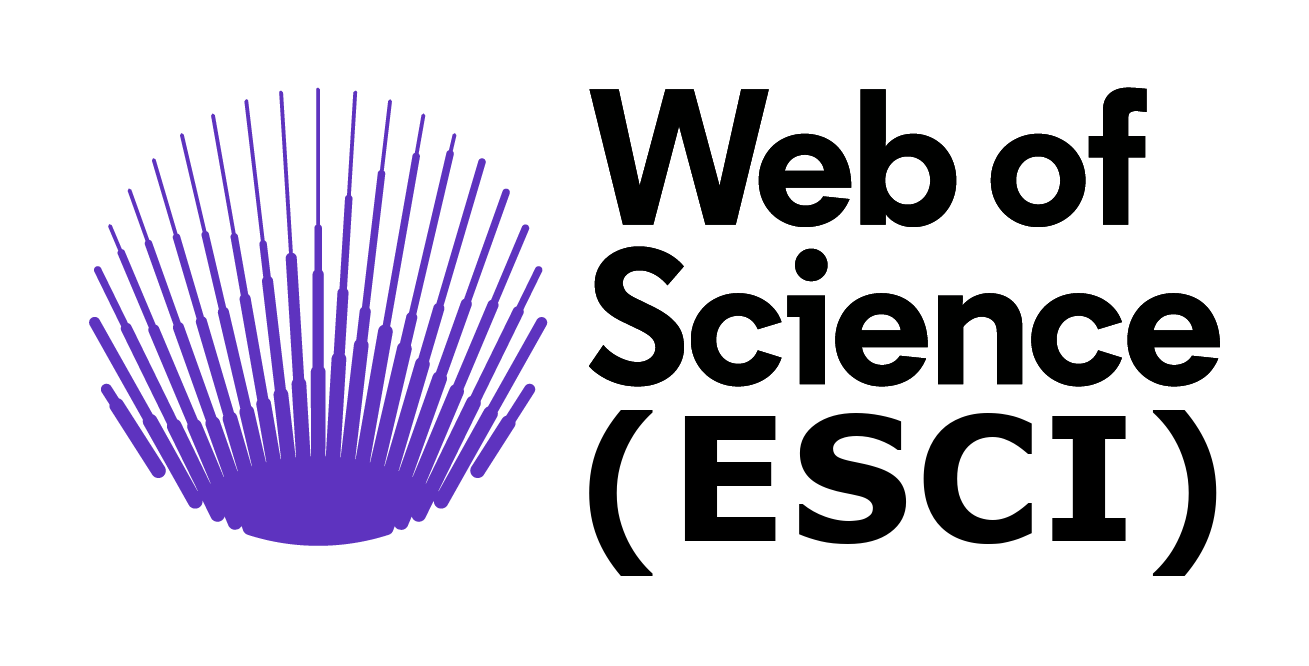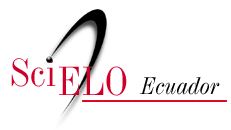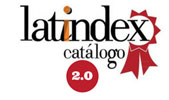Sustainable management for the production of biofungicides and strengthening of the Venezuelan agricultural bio-inputs sector
DOI:
https://doi.org/10.29019/enfoqueute.v10n1.392Keywords:
management; biofungicides; sustainability.Abstract
The purpose of this work was the design of a management proposal for the production of biofungicides, based on international standards related to quality, environment and safety, and occupational health, aiming at strengthening the Venezuelan agricultural bio-inputs sector, in the production of excellent quality products obtained under sustainable production schemes. A diagnosis was made to establish the conformities of the current management of the laboratories dedicated to this activity with the provisions in the standards, besides of a situational diagnosis for the adoption of the proposal. It is an applied investigation, of field and level of descriptive study; the data were collected between April-September 2018 using the survey and structured observation as techniques, and the questionnaire and checklists as instruments. A sustainable management model was generated to promote the adequacy of the organization's task and being, with the duty to be, constituting an input to lay the foundations that propitiate the national and international recognition of the laboratories and platform, to ensure compliance with the requirements of the registration process, mainly in relation to quality assurance, safety conditions of the production process, required documentation and evaluation of the product.
Downloads
References
Arias, F. (2006). El Proyecto de Investigación, Introducción a la metodología científica. (5a ed). Caracas: Episteme.
Asociación Española de Normalización y Certificación. AENOR. (2005). Norma Española UNE 66177. Sistemas de gestión. Guía para la integración de los sistemas de gestión.
Asociación Española de Normalización y Certificación. AENOR. (2014). Norma Española UNE 166002. Gestión de la I+D+i: Requisitos del Sistema de Gestión de la I+D+i. [Documento en Línea]. Consultado el 27 de agosto de 2017 en: https://es.scribd.com/doc/268148089/UNE-166002-2014-ESP
Balestrini, M. (2001). Cómo se Elabora el Proyecto de Investigación. (5ª ed.). Caracas: BL Consultores Asociados.
Cock, M. (1996). Control biológico de malezas. En: Manejo de Malezas para Países en Desarrollo. (Estudio FAO Producción y Protección Vegetal – 120). Organización de las Naciones Unidas para la Agricultura y la Alimentación. (Ed). Roma. [Libro en línea]. Consultado el 05 abril 2017 en: http://www.fao.org/docrep/T1147S/t1147s0d.htm#capítulo 9.control biológico de malezas
Chandler, D., Bailey, A., Tatchell, G., Davidson, G., Greaves, J., y Grant, W. (2011). The development, regulation and use of biopesticides for integrated pest management. Philosophical Transactions of the Royal Society B: Biological Sciences, 366(1573), 1987–1998. [Documento en línea]. Consultado el 20 de marzo de 2017 en: https://www.ncbi.nlm.nih.gov/pubmed/21624919
Falconí, C. (2014). Control biológico de enfermedades de plantas en Ecuador. En: Control biológico de enfermedades de plantas en América Latina y el Caribe. Bettiol, W., Rivera, M., Mondino, P., Montealegre, J. & Colmenárez, Y. (Eds.). Facultad de agronomía. Universidad de la República. Montevideo, Uruguay. [Libro en línea]. Consultado el 17 de marzo de 2017 en: https://www.researchgate.net/publication/272086409_Control_Biologico_de_Enfermedades_de_Plantas_en_America_Latina_y_el_Caribe
Hernández, R., Fernández, C. y Baptista, P. (2014). Metodología de la Investigación. (6ª ed.). México: McGraw-Hill.
Infostat. (2002). Infostat versión 1.1. Grupo Infostat, FCA. Argentina: Universidad Nacional de Córdoba.
Instituto Nacional de Salud Agrícola Integral. INSAI. (2016). Requisitos para el registro de biocontroladores. [Documento en línea]. Consultado el 17 de marzo de 2017 en: http://www.insai.gob.ve/wp-content/uploads/2016/08/F-1-REQUISITOS-PARA-EL-REGISTRO-DE-BIOCONTROLADORES.pdf
Jaronski, S. (2013). Mass Production of Entomopathogenic Fungi: State of the Art. [Documento en línea]. Consultado el 26 de junio de 2017 en: https://www.researchgate.net/publication/281766568_Mass_Production_of_Entomopathogenic_Fungi_State_of_the_Art
Organización de las Naciones Unidas para la Agricultura y la Alimentación. (FAO). 2006. «Inocuidad de los alimentos y sanidad animal y vegetal: Tendencias y desafíos para América Latina y el caribe». En: 29ª Conferencia Regional de la FAO para América Latina y El Caribe. Caracas, Venezuela, 24-28 de abril de 2006. [Documento en Línea]. Consultado el 21 de Mayo de 2017 en: http://www.fao.org/docrep/meeting/021/j7447s.pdf
Occupational Health and Safety Assessment Series. OSHAS. (2008). Norma Internacional OSHAS 18001:2008. Sistema de Gestión en Seguridad Industrial y Salud Ocupacional.
Organización Internacional para la Normalización (ISO). (2015a). Norma Internacional ISO 9001:2015. Sistemas de gestión de la calidad. Requisitos.
Organización Internacional para la Normalización (ISO). (2015b). Norma Internacional ISO 14001:2015. Sistemas de gestión ambiental. Requisitos con orientación para su uso.
Paleologos, M. y Flores, C. (2014). Principios para el manejo ecológico de plagas. En: Sarandón, S. y Flores, C. (Ed). Agroecología: bases teóricas para el diseño y manejo de Agroecosistemas sustentables. Facultad de Ciencias Agrarias y Forestales. Universidad Nacional de La Plata. Argentina. [Libro en línea]. Consultado el 12 de marzo de 2017 en: http://www.mec.gub.uy/innovaportal/file/75868/1/agroecologia.pdf
Reyes, A.; Rincón, G.; López, L.; Evangelista, Z. y Quiñones, E. (2015). Lucha entre microbios: una herramienta para el control de enfermedades de plantas”. Revista Digital Universitaria. [Revista en línea]. 16 (11). Consultado el 27 de marzo de 2018 en: http://www.revista.unam.mx/vol.16/num11/art92/
Ruiz, C. (s/f). Confiabilidad. Programa Interinstitucional Doctorado en Educación. [Documento en Línea]. Consultado el 17 de enero de 2018 en: http://www.carlosruizbolivar.com/articulos/archivos/Curso%20CII%20%20UCLA%20Art.%20Confiabilidad.pdf
Serrano, L. y Galindo, E. (2007). Control biológico de organismos fitopatógenos: un reto multidisciplinario. Revista Ciencia: enero-marzo 2007. [Revista en línea]. Consultado el 04 de abril de 2017 en: http://www.ibt.unam.mx/Geg/lineas/Control%20Biologico%20Ciencia.pdf
Zambrano, C.; Goyo, Y.; Jiménez, M. y Zambrano, K. (2014). Control biológico de enfermedades de plantas en Venezuela. En: Control biológico de enfermedades de plantas en América Latina y el Caribe. Bettiol, W., Rivera, M., Mondino, P., Montealegre, J. & Colmenárez, Y. (Eds.). Facultad de agronomía. Universidad de la República. Montevideo, Uruguay. [Libro en línea]. Consultado el 17 de marzo de 2018 en: https://www.researchgate.net/publication/272086409_Control_Biologico_de_Enfermedades_de_Plantas_en_America_Latina_y_el_Caribe
Published
How to Cite
Issue
Section
License
The articles and research published by the UTE University are carried out under the Open Access regime in electronic format. This means that all content is freely available without charge to the user or his/her institution. Users are allowed to read, download, copy, distribute, print, search, or link to the full texts of the articles, or use them for any other lawful purpose, without asking prior permission from the publisher or the author. This is in accordance with the BOAI definition of open access. By submitting an article to any of the scientific journals of the UTE University, the author or authors accept these conditions.
The UTE applies the Creative Commons Attribution (CC-BY) license to articles in its scientific journals. Under this open access license, as an author you agree that anyone may reuse your article in whole or in part for any purpose, free of charge, including commercial purposes. Anyone can copy, distribute or reuse the content as long as the author and original source are correctly cited. This facilitates freedom of reuse and also ensures that content can be extracted without barriers for research needs.
This work is licensed under a Creative Commons Attribution 3.0 International (CC BY 3.0).
The Enfoque UTE journal guarantees and declares that authors always retain all copyrights and full publishing rights without restrictions [© The Author(s)]. Acknowledgment (BY): Any exploitation of the work is allowed, including a commercial purpose, as well as the creation of derivative works, the distribution of which is also allowed without any restriction.























 Enfoque UTE - Facultad de Ciencias de la Ingeniería e Industrias - Universidad UTE
Enfoque UTE - Facultad de Ciencias de la Ingeniería e Industrias - Universidad UTE